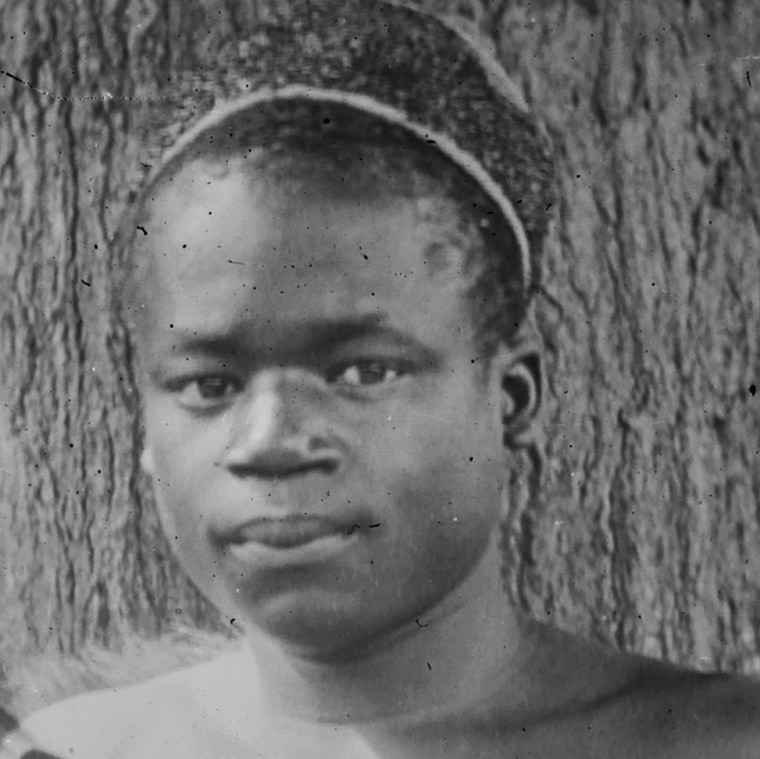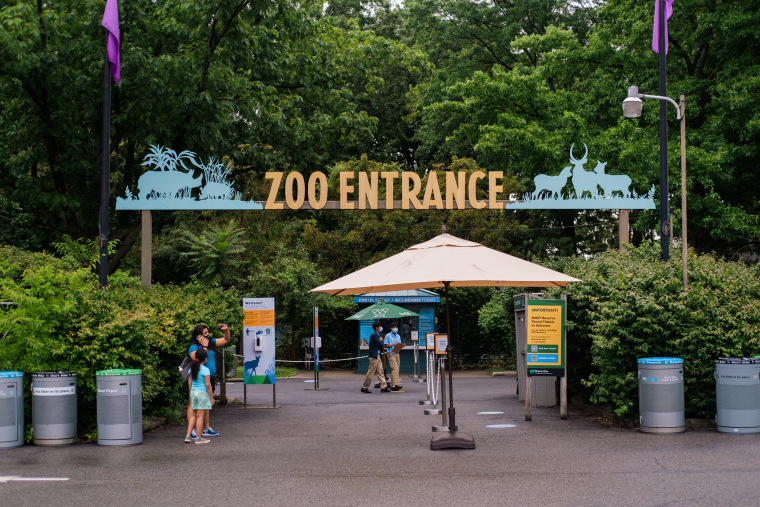The operator of the venerable Bronx Zoo, one of the world's most famous wildlife parks, has apologized for two "unconscionable" racist episodes in its past, including placing an African man on display in a monkey house in 1906.
The Wildlife Conservation Society, which runs the Bronx Zoo in addition to three other zoos and an aquarium in New York City, said in a statement this week that in the "name of equality, transparency, and accountability, we must confront our organization's historic role in promoting racial injustice."
The society cited its treatment of a young Central African man from the Mbuti people in the present-day Democratic Republic of Congo.

"His name was Ota Benga," the statement said. Bronx Zoo officials "put Ota Benga on display in the zoo’s Monkey House for several days during the week of September 8, 1906 before outrage from local Black ministers quickly brought the disgraceful incident to an end."
One of those ministers, the Rev. James Gordon, "arranged for Ota Benga to stay at an orphanage he directed in Weeksville, Brooklyn," the statement said. "Robbed of his humanity and unable to return home," Ota Benga died by suicide a decade later.
Harvey Blume, who co-authored the 1992 book "Ota Benga: The Pygmy At The Zoo," said the zoo's apology is too little and too late.
"And to whom was this apology? It's a little late for Ota," Blume told NBC News on Friday.
All known records about Ota Benga at the wildlife society are now being made available online as part of an effort to "publicly acknowledge the mistakes of our past," the Wildlife Conservation Society's statement said.
The organization, founded in 1895 as the New York Zoological Society, also denounced the "eugenics-based, pseudoscientific racism, writings, and philosophies" advanced by two of its founders, Madison Grant and Henry Fairfield Osborn, Sr.
Grant penned an infamous eugenics book, “The Passing of the Great Race,” with a preface by Osborn.
The book was submitted as a defense exhibit for Nazi doctor Karl Brandt, a director of the Third Reich's "euthanasia" program, and other defendants in the Nuremberg trials.
Brandt, who was also Adolf Hitler's personal physician, was convicted by the war crimes tribunal in 1947 and put to death in 1948.
"Back in that day, science and anthropology were based on explicitly racist principles," Blume said. "That there was a hierarchy of races, culminating with the white race on top, looking down."
The role once-respected scholars played in propping up debunked scientific theories to justify white supremacy has been overlooked for far too long, according to the author.
"Madison Grant was one of Hitler's favorite authors," said Blume, who co-authored "Ota Benga: The Pygmy At The Zoo" with the late Phillips Verner Bradford, grandson of the man who purchased Ota Benga in Africa and brought him to America.
"These were not Nazis, but in some ways they were too."
The wildlife society said in its statement, which was first reported by The New York Times, that it is obligated to confront these episodes.
"We deeply regret that many people and generations have been hurt by these actions or by our failure previously to publicly condemn and denounce them," the statement said.
"We recognize that overt and systemic racism persists, and our institution must play a greater role to confront it. As the United States addresses its legacy of anti-Black racism and the brutal killings that have led to mass protests around the world, we reaffirm our commitment to ensuring that social, racial, and environmental justice are deep-rooted in our conservation mission."
The organization also announced it was hiring a diversity officer to help "ensure diverse pools of candidates for recruitment, promotion, and succession planning, including our board and leadership."
"Today we challenge ourselves to do better and to never look away whenever and wherever injustice occurs," the statement said.

